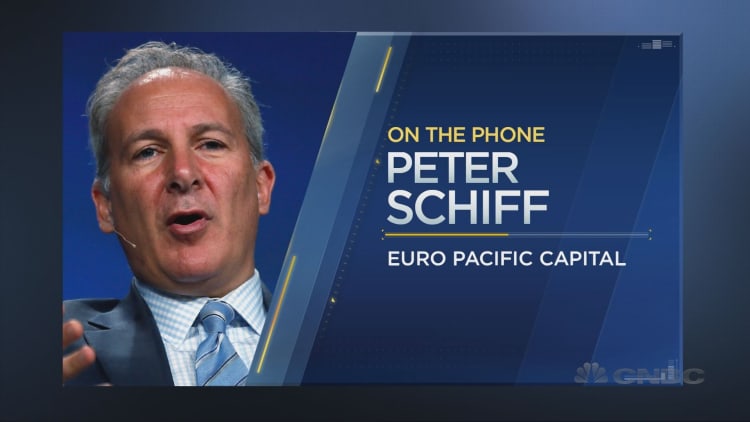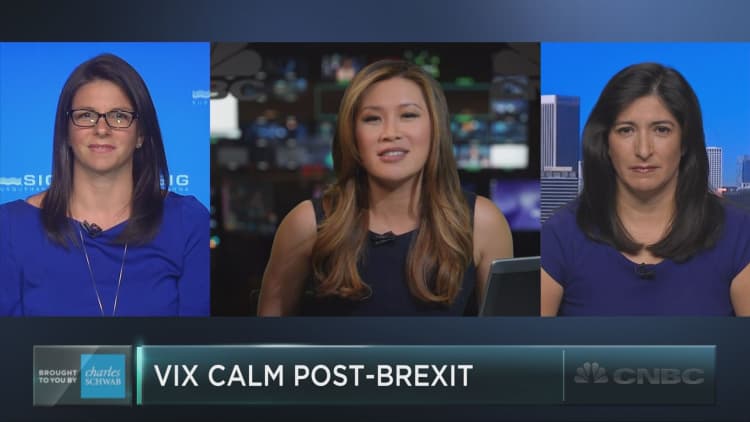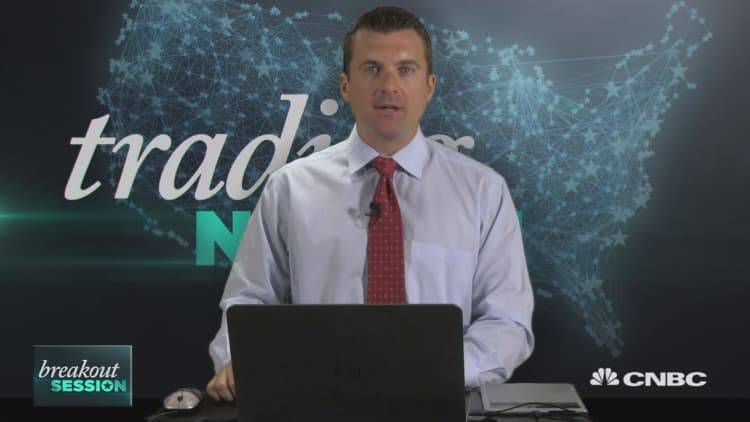


With Britain's decision to leave the European Union, one of Wall Street's most closely followed bears says that Federal Reserve chair Janet Yellen should send the Brexit campaign leaders a gift basket.
The U.K.'s decision sent global markets reeling in its aftermath, hiking volatility and injecting uncertainty into the outlook for the world's economy. For those reasons, a growing number Wall Street watchers think the Fed's timetable to gradually hike interest rates have been severely curtailed, if not taken off the table altogether.
The Fed's willingness to begin pulling back on crisis era policy was already in doubt. "Now, Janet Yellen can blame her failure to raise rates on Brexit," said Peter Schiff, CEO of Euro Pacific Capital on CNBC's "Trading Nation" this week.
"She could even use this as an excuse to cut rates back to zero and launch QE4," the bearish investor said, referring to a fourth round of quantitative easing, the massive bond buying used by the Fed to try and spur growth.
"As far as Janet Yellen is concerned, the British have given her the gift that keeps on giving," concluded Schiff.
A relentless critic of the central bank, Schiff used Britain's referendum as a new reason to blast U.S. financial leaders. He said without Brexit, the Fed would have to admit that domestic economic weakness is the true reason for leaving rates near zero.
"For months, the corner that the Fed has painted itself into has gotten smaller and smaller," explained Schiff in his recent coverage. "Sadly, Fed officials are discovering that their supply of credibility is not infinite."
Markets suffered a harrowing trading session on Friday, with the Dow plunged over 600 points to a 10-month low, and Germany DAX closing down nearly 7 percent, its worst day since 2008. Additionally, the STOXX dropped 14 percent for its worst day since 1987 while markets in Spain and Italy both sank by 7 percent.
Schiff believes that weak markets will continue to fuel the Fed's resistance to tightening monetary policy. He said that when critics call out the Fed's inaction, the Fed can simply point to uncertainty in the U.K., the world's fifth largest economy.
'An excuse for years'
"Since the process is bound to be long, messy and fraught with uncertainties this will be a handy excuse that the Fed will be able to rely on for years," said Schiff, an outspoken libertarian who previously advised Ron Paul's 2008 presidential campaign.
From here, Schiff is fearful that low rates will distort global currencies. On Friday, the pound touched a 30-year low versus the dollar while the traded up by over 2 percent.
"Given that there is already much concern that the dollar is valued too highly against most currencies, any surge in the dollar that results from Brexit will have to be fought by the Federal Reserve through lower interest rates and quantitative easing," Schiff added.
Greenspan's fears
Alan Greenspan echoed similarly worrisome sentiments on CNBC on Friday's "Squawk Box" and called Friday brutal trading the worst he's ever seen.
"This is just the tip of the iceberg," warned Greenspan, who served as Federal Reserve Chairman from 1987 to 2006. "This problem that's causing the British problem is far more widespread. Fundamentally, what we are looking at is a massive slowing in the rate of real incomes across the whole European spectrum."
Schiff added that gaps between the working class anti-establishment and the political and economic establishment are likely to fuel further upheaval in the world economy.
At this point in time, a global disconnect seems to be widening, he said.
"The people revolted," said Schiff. "After having been misled for so many years by the very elites who urged them to remain, the rank and file asserted themselves and voted with their feet."
Schiff argued the public is rebelling against policies backed by the political class, such as deficit spending, government regulation were key for a recovery post-2008. Furthermore, Schiff says that the rise of insurgents like Donald Trump illustrate a deep distrust of the establishment that helped lead to Britain's departure.
With cracks in the EU now exposed, troubled nations like Spain, Italy and Portugal could soon followed Britain's example, some say. With this, time will tell if the European Union's days are numbered, which could further help the Fed in delaying rate hikes.
--CNBC's Christine Wang contributed to this article.
Want to be a part of the Trading Nation? If you'd like to call into our live Monday show, email your name, number and a question to TradingNation@cnbc.com






